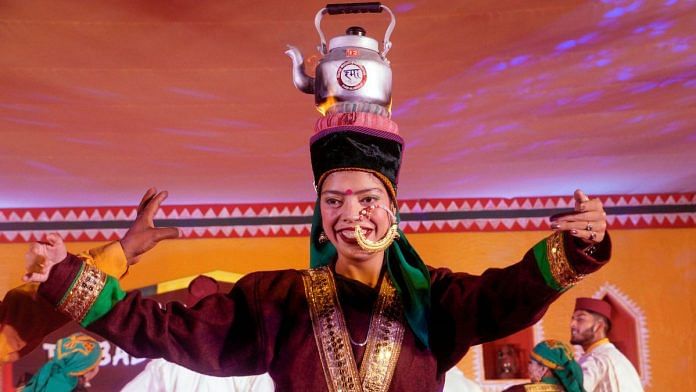Is Uttarakhand’s decision to exclude the Scheduled Tribes, who comprise between 3-4 per cent of the state’s population, from its Uniform Civil Code purely based on political calculations?
Partly, but this exclusion is also because of the legal choices made by the drafters of the UCC. However, we argue that there’s a deeper answer to this question, which exposes the fundamental problems in the concept of a UCC.
Legal choices of the drafters
Given that a large part of the Uttarakhand UCC has been taken from the Hindu Marriage Act 1955 and the Hindu Succession Act 1956, it has naturally reproduced the exemptions under those laws. Neither of these laws, and in fact none of the four laws constituting the Hindu Code, apply to Scheduled Tribe communities. This is partly because of the constitutional protection enjoyed by members of Scheduled Tribe communities under the Fifth and Sixth Schedules of the Constitution. Laws that might relate to the customs and practices of ST communities cannot be made applicable to them without the approval of the Governor of the state.
In addition to this, the Uttarakhand UCC also refers to Part XXI of the Constitution and communities that enjoy protections under the articles contained there. This part contains all the special provisions that guarantee the special status of Assam, Nagaland, Mizoram, Meghalaya, Tripura, and Sikkim among others. The tribal populations of Nagaland and Mizoram are also exempt from any law relating to customs and practices related to personal laws unless the legislatures of these states approve the same.
Constitutionally and legally, the Uttarakhand UCC had to exclude ST communities. However, there is a political dimension to this as well.
Also read: Uttarakhand UCC resembles colonial South African law. Kasturba Gandhi fought against it
Political pushback against UCC
When Prime Minister Narendra Modi made a push for a UCC last year, there was strong pushback from Adivasi communities across the country, especially in Jharkhand. Even the RSS’ Vanvasi Kalyan Ashram was hesitant to endorse the UCC, acknowledging the concerns of tribal communities. Likewise in Nagaland, the state assembly passed a resolution against the UCC.
The political purpose behind the exclusion of STs in the Uttarakhand UCC is also to assure the ST communities across the country, ahead of the 2024 Lok Sabha election, that the UCC will not apply to them. Assam Chief Minister Himanta Biswa Sarma has similarly promised to exclude the tribal communities when the state brings its own UCC.
Also read: To understand Uttarakhand live-in rules, learn how authoritarianism & totalitarianism differ
Why Adivasis don’t want UCC
At the heart of the worries of ST communities in India is the UCC’s potential impact on land ownership among the tribal communities and a legal push to “Hinduise” them. Tribal customs and practices mean that land is not “owned” in the same way as it might be among other communities. Some tribal communities also highlight the colonial government’s promise not to interfere with tribal customs and practices, demanding the Indian government continue the same policy.
This does not mean that tribal customs and practices cannot end up being discriminatory towards women who might be denied the right to inherit property. Addressing this through the framework of statute law is tricky. One such example is seen in Madhu Kishwar v State of Bihar (1996), where the Supreme Court had evident sympathy for an Adivasi woman who had been dispossessed of her property by her relatives but had to refrain from striking down the customary laws which enabled this.
However, the judiciary has found another way of applying statutory law to Scheduled Tribe communities—the test of “Hinduisation”. Originally developed by the Calcutta High Court during colonial rule, this test has started to be used by Indian courts to apply the Hindu Code to Scheduled Tribe communities, despite their express exclusion. In essence, the courts have held that where the customs and practices of tribal communities have become “Hinduised” over a period of time, statutory Hindu law would apply to such communities. This is a problematic test not only from a purely legal perspective but also risks encroaching on sensitive issues of religious and cultural identity of such communities. Such a test puts Adivasi women in the unsavoury position of having to choose between their communities’ identity and their individual rights.
Applying family law frameworks developed in context of other communities to India’s vast, diverse tribal communities is fraught with challenges. While there is a need to account for and address discriminatory practices where they exist, this cannot come at the cost of erasing the unique culture and civilisation of India’s Adivasis.
Alok Prasanna Kumar and Prathiksha Ullal are part of the Vidhi Centre for Legal Policy. Views are personal.
(Edited by Theres Sudeep)




and for how long will the votebank politics continue? how long will STs be out of UCC? when scrapping article 370 of JK, pm said its one nation and everyone is free to go anywhere in the country, stay anywhere… now with UCC the same applies. it should be applicable to all communities independent of religion, caste… if the constitution says so, then it should be corrected or rewritten… we can’t have some people to enjoy while others are oppressed with the laws.. one law for all the people